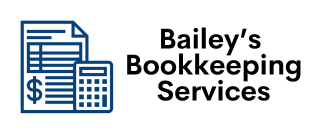Who Gets a 1099 — And How to Stay Ready All Year Long
If you run a business or hire independent workers, understanding who should get a 1099 form is crucial. These forms aren’t just year-end paperwork—they reflect your responsibility to track and report non-employee payments to the IRS accurately. The good news? Staying on top of it all year can make tax season a breeze.
So, Who Gets a 1099?
A Form 1099-NEC (Nonemployee Compensation) must be issued to any individual or business (excluding corporations in most cases) who:
Is not an employee
Was paid $600 or more in the calendar year
Provided services to your business
This includes:
Freelancers (writers, designers, virtual assistants)
Independent contractors (consultants, coaches)
Tradespeople (plumbers, electricians)
Legal and accounting professionals
Sole proprietors and partnerships
Other versions of 1099 exist too—for rent payments (1099-MISC), interest income (1099-INT), and dividend income (1099-DIV), among others. But for most businesses, the 1099-NEC is the one to watch.
Why Tracking Year-Round Matters
Waiting until January to figure out who needs a 1099 is stressful and prone to errors. Instead, build a simple system that tracks contractor payments and information all year long.
Here's How to Stay on Top of It:
✅ Collect a W-9 Upfront
Before paying any contractor, ask them to complete a Form W-9. This gives you their legal name, tax ID, and business classification—all the info you’ll need later.
✅ Use Accounting Software
Tools like QuickBooks can automatically track payments and flag 1099-eligible vendors. Make sure to properly label these vendors in your system.
✅ Plan Ahead for Deadlines
1099s must be sent to recipients and filed with the IRS by January 31 each year. Filing late can result in penalties—so don’t wait until the last minute!
Final Thoughts
Issuing 1099s is part of doing business the right way. With a little preparation and organization throughout the year, you can simplify the process, avoid fines, and keep your business running smoothly.
If you’re unsure about who qualifies or how to report payments properly, reach out to us and we can help get you where you need to be!
